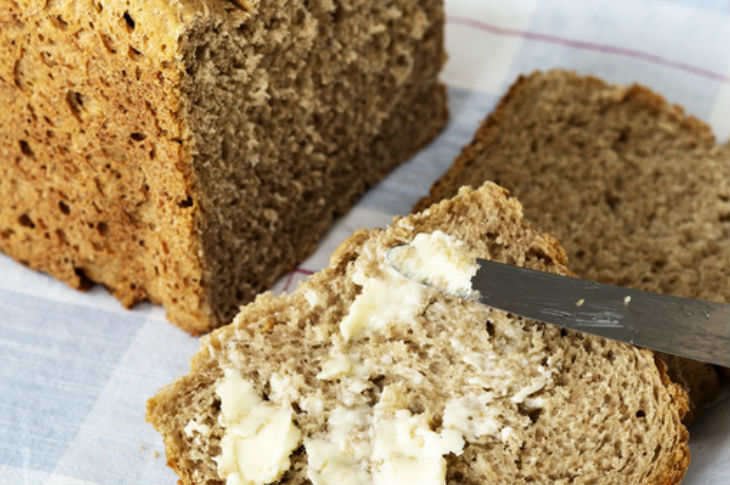
September is AFib Awareness Month, and at Fitbit, we’re helping you to learn more through content that focuses on all things heart health throughout the month. Click here for more blog posts in the series.
If you need to lower your cholesterol—which is a risk factor for heart disease, heart attack, and stroke—your diet is the place to start. The American Heart Association recommends limiting saturated fat to 5 to 6 percent of your daily calories, along with minimizing trans fat, which is found in fried foods and foods containing partially hydrogenated oil. A diet that’s high in fiber can also lower your cholesterol levels by up to 10 percent.
Let’s say you’ve done all of that and still need to get your cholesterol levels down. You may want to add something called plant sterols and stanol esters, or phytosterols, to your diet.
“Phytosterols are plant components that are similar in structure to cholesterol, which they compete with, for absorption in the body,” explains Robin Foroutan, R.D.N., an integrative dietitian nutritionist and spokesperson for the Academy of Nutrition and Dietetics. The less cholesterol you absorb, the lower your cholesterol levels. In fact, consuming phytosterols can lower your total cholesterol by up to 10 percent and your LDL, or “bad,” cholesterol by up to 14 percent, according to the Cleveland Clinic. (Phytosterols don’t affect triglycerides or “good” cholesterol.)
Though all plant foods contain phytosterols, vegetable, nut, and olive oils contain the most. Nuts, seeds, whole grains, and legumes are also good sources. Most foods with naturally occurring phytosterols contain milligram amounts in the double digits, and the American College of Cardiology recommends 1 to 3 grams of phytosterols per day to reduce your risk of heart disease. (The FDA has approved a health claim that at least 1.3 grams per day as part of a diet low in saturated fat and cholesterol may reduce the risk of heart disease.)
That’s where fortified foods, such as spreads and orange juice, come in. These typically contain half to 1 gram, and sometimes close to 2 grams of phytosterols. “Fortified foods can be really helpful,” says Foroutan. “But they’re only one element in a plant-based diet that supports cardiovascular health.”
This information is for educational purposes only and is not intended as a substitute for medical diagnosis or treatment. You should not use this information to diagnose or treat a health problem or condition. Always check with your doctor before changing your diet, altering your sleep habits, taking supplements, or starting a new fitness routine.

If you have questions about a Fitbit tracker, product availability, or the status of your order, contact our Support Team or search the Fitbit Community for answers.
Please note: Comments are moderated and may not appear immediately after submission.